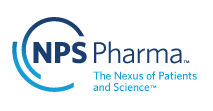Object. The authors sought to determine whether 3,3-bis (3-fluorophenyl) propylamine (NPS 846), a novel noncompetitive N-methyl-d-aspartate receptor antagonist, alters outcome after closed head trauma in rats.Methods. The experimental variables were: presence or absence of closed head trauma, treatment with NPS 846 or no treatment, and time at which the rats were killed (24 or 48 hours). The NPS 846 (1 mg/kg) was administered intraperitoneally at 1 and 3 hours after closed head trauma or sham operation. Outcome measures were the neurological severity score (NSS), ischemic tissue volume, hemorrhagic necrosis volume, and specific gravity, water content, and concentrations of calcium, sodium, potassium, and magnesium in brain tissue. The following closed head trauma—induced changes in the injured hemisphere (expressed as the mean ± the standard deviation) were reversed by NPS 846: decreased specific gravity of 1.035 ± 0.006 at 24 hours was increased to 1.042 ± 0.004; the decreased potassium level of 0.583 ± 0.231 mg/L at 48 hours and at 24 hours was increased to 2.442 ± 0.860 mg/L; the increased water content of 84.7 ± 2.6% at 24 hours was decreased to 79.8 ± 2%; the increased calcium level of 0.592 ± 0.210 mg/L at 24 hours was decreased to 0.048 ± 0.029 mg/L; and the increased sodium level of 2.035 ± 0.649 mg/L was decreased to 0.631 ± 0.102 mg/L. Administration of NPS 846 also lowered the NSS (improved neurological status) at 48 hours (7 ± 3) and caused no significant changes in ischemic tissue or hemorrhagic necrosis volumes in the injured hemisphere at 24 or 48 hours.Conclusions. In this model of closed head trauma, NPS 846 improved neurological outcome, delayed the onset of brain edema, and improved brain tissue ion homeostasis.






